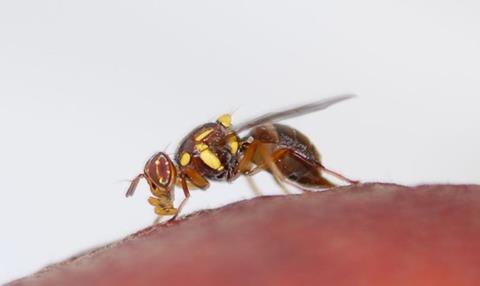
South Australia is upgrading measures to prevent fruit fly in the state as it bids to maintain access for its citrus and almond producers to key markets including the US, Japan and New Zealand.
The state is the only part of Australia’s mainland that is free from fruit fly. That status has enabled it to secure and grow its international horticultural export business, a sector that also includes wine grapes and which was reportedly worth more than A$800m this year.
The new measures centre on the so-called Sterile Insect Technique (SIT), which introduces sterile flies into the environment that then mate with the wild population, ensuring offspring are not produced.
From a new A$3.8m facility in Port Augusta, billions of sterile male fruit flies will be released at the rate of 50m a week in order to eliminate the threat of fruit fly invading the state.
Phil Taylor, associate professor at Macquarie University, said the fly – known as Qfly because it originated in Queensland – presented the “most difficult and costly” biosecurity challenge to market access for most Australian fruit producers.
“Fruit flies, especially the Queensland fruit fly, present a truly monumental challenge to horticultural production in Australia,” he said. “For generations, Australia has relied on synthetic insecticides to protect crops, but these are now banned for many uses. Environmentally benign alternatives are needed urgently – this is our goal.”
South Australia’s Agriculture Minister Leon Bignell said the new centre would counter the risk of an outbreak, which remained a real threat.
“The state government has invested A$3m and Horticulture Innovation Australia has contributed A$800,000 in this project and construction is expected to take 10 months,” he said. “Producing male-only sterile Qflies has never been done before on this scale and this facility will have an enormous impact on the way in which we deal with outbreaks.”
South Australia is also the only mainland state which has a moratorium on growing GM food crops and is one of the few places in the world free of the vine-destroying pest phylloxera.
“Because of these attributes, South Australian products stand out in the competitive global market, which is increasingly seeking clean and safe food and wine,” Bignell added.
SITplus, an industry research consortium also involved in the project, has said it intends to invest about A$50m during the next five years to support the national fruit fly management programme.



